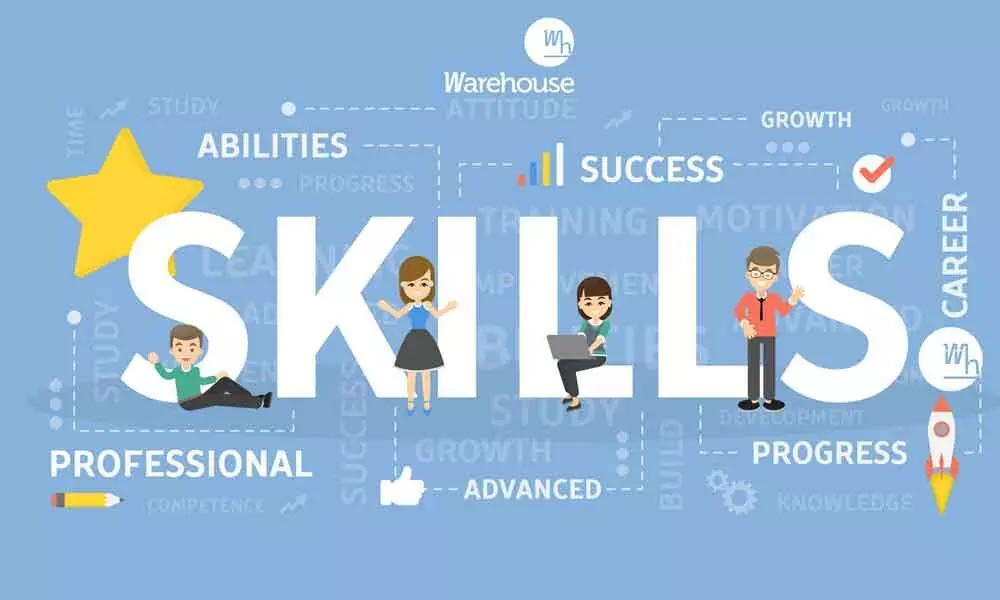Skills you need to succeed in post-pandemic world

Skills you need to succeed in post-pandemic world
The economic crisis engendered by coronavirus brought us all to our knees, rupturing the professional trajectory of the business world.
The economic crisis engendered by coronavirus brought us all to our knees, rupturing the professional trajectory of the business world. Highly skilled individuals found themselves restricted when faced with the troubles brought about by the viral spread and uphill battles were fought to keep careers moving. Thus, the imagination of a post-pandemic world has to derive from our resilience and learnings in the Co-Covid times. While the ambit of human welfare will deal with the same goals of job and food security, health and satisfaction, the means we shall employ to attain them shall differ. Therefore, the skills we will need to flourish in the post-Covid world require particular attention and deliberation.
To this end, survival and thriving become drastically altered ideas with the transformations we have encountered and the follies we have understood while battling the pandemic. The World Economic Forum estimated that 54 per cent of all employees will require 'significant' reskilling by 2022 to keep up with the digital revolution. Research by the McKinsey Global Institute has looked at the kind of jobs that will be lost, as well as those that will be created, as automation, AI, and robotics take hold and has inferred the type of high-level skills that will become increasingly important as a result. The need for manual and physical skills, as well as basic cognitive ones, will decline, but demand for technological, social and emotional, and higher cognitive skills will grow.
This is interesting to note, as the future clearly hints towards an increased dependence on cognition. To think of remote healthcare during lockdowns, where medical professionals and patients pulled off exceptional journeys of care and recovery, cognitive abilities on both ends were exercised using technology as a medium like never before. Drawing from this, education and communication alongside familiarity with technology become areas where skilling becomes decisive.
The McKinsey survey participants with a university degree had higher average proficiency scores across 56 distinct elements of talent, suggesting that those with higher levels of education are better prepared for changes in the workplace. To think of it conceptually, higher education enables greater adaptability owing to greater exposure to what the world has to offer and facilitates substantial communication. Accordingly, a focus on attaining higher education shall be crucial to survival and flourishing in the professional and social world. Digital skills cannot be detached from this as even in a pre-pandemic time, the growing digital skills gap was apparent across business worldwide. As studies show, 82 percent of job vacancies now require digital skills of some kind and to be an effective remote worker, familiarity with technology is undeniably necessary.
Adaptability and flexibility are linked to the deployment of education and communication effectively, which necessitates a spirit of enquiry and critical thinking. Data published by the Society for Human Resource Management (SHRM) found that 37 percent of employers considered problem-solving and critical thinking among the top soft skills candidates lacked. During the pandemic, when fake news and misinformation abounded, rational and vigilant thinking to evaluate information was indispensable and the same shall hold true for a technology-driven future. As scholar Stephanie L. notes, good critical thinkers ask questions that can help them dig a little deeper - questions such as: "what's happening?", "why is this important?", "who is being affected?", "where did the information come from?", "can I be sure about the source?".
All of these together prepare candidates for a dynamic workplace and a changing world. Education equips us to know better, critical thinking to choose the narratives to believe and employ, communication skills to convey it to people crucially and digital proficiency to harness the right medium on the chosen scale.
On another note, it is impossible to overlook the human cost of a crisis and consequently, emotional intelligence becomes an arena of increased significance. As crises and transformations unfold, workers must be able to compartmentalize how they feel to be able to do justice to their professional commitments. For instance, remote work might be uncomfortable for people who have worked for years in an office, but such discomfort has to be navigated through, without it obfuscating professional vision. At the same time, emotional skills would be conducive for collective effort, as they would facilitate greater empathy, understanding and collaboration across professional networks.
On the whole, a post-pandemic future shall be fuelled by renewed human enterprise relying on a diversity of soft skills and technological prowess. Preparedness for the future is thus, promoting equipping ourselves with these skills to navigate the unpredictability and dynamism of the world in the years to come.
(The author is Founder Upsurge Global and President SAHE (Society for Advancement of Human Endeavour)



